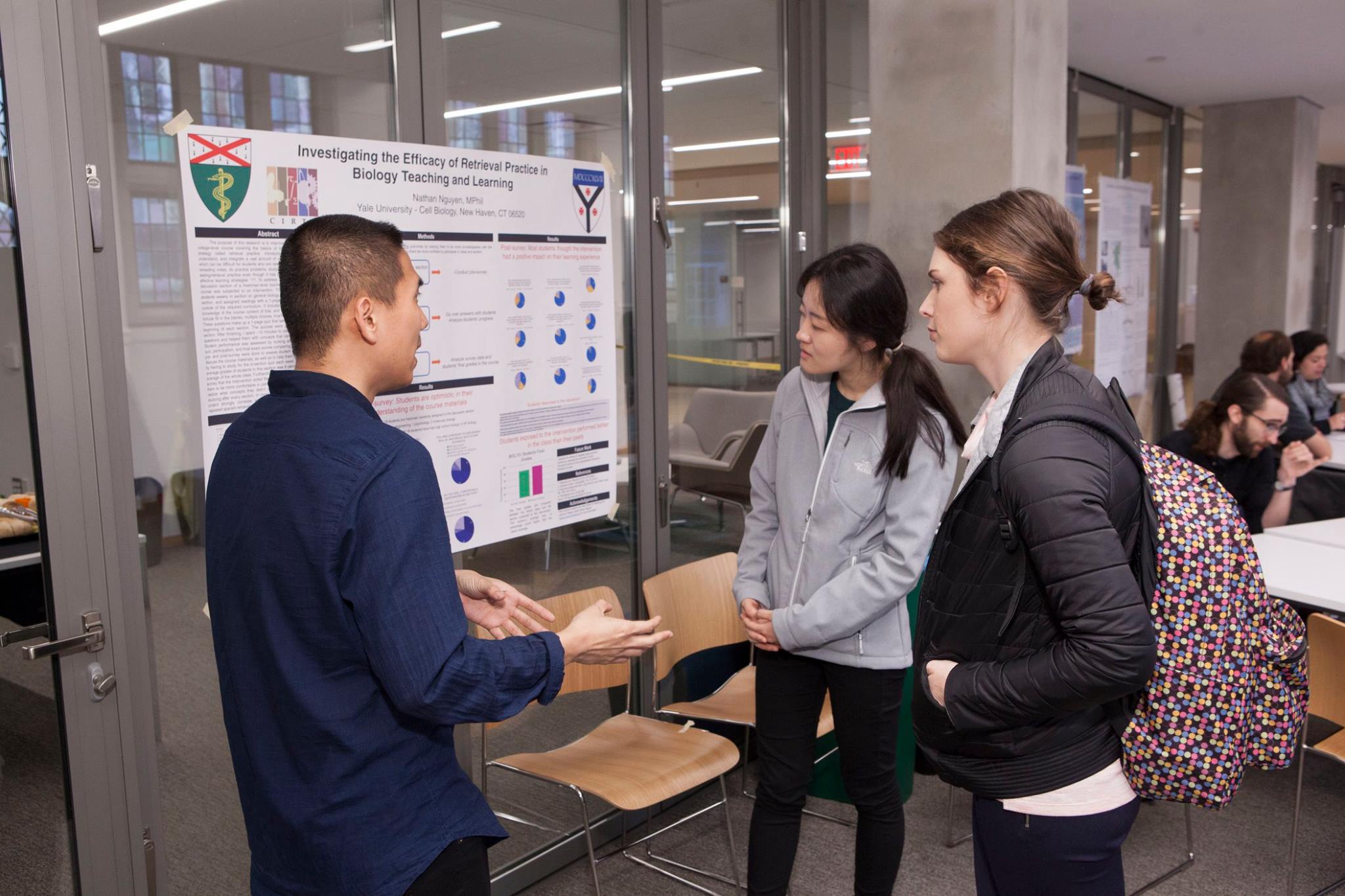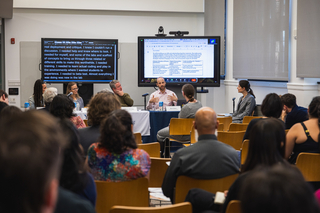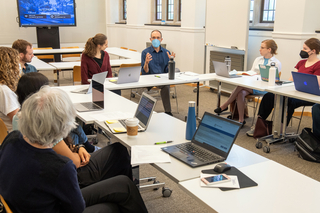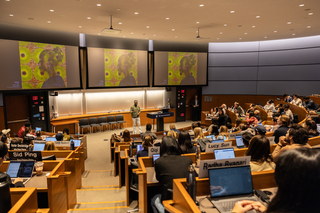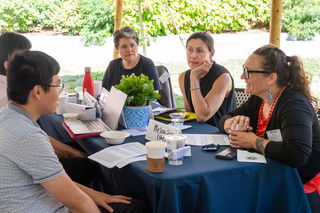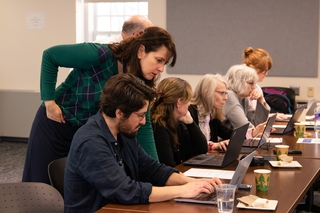Embarking on your journey as a graduate student is both an exciting and challenging experience. Our goal is to support you in your teaching and writing by providing a wealth of resources and services designed to help you succeed. Let us help you achieve your highest potential!
McDougal Graduate Teaching Fellows
The McDougal Graduate Teaching Fellows at the Poorvu Center lead programs on effective and innovative teaching, develop teaching resources, and provide individual observations for graduate student and postdoctoral instructors at Yale. As a fellow, you will grow and deepen your expertise, while you reflect on and refine your approach to teaching through sustained engagement with interdisciplinary pedagogical scholarship. To be eligible, applicants must be registered graduate students in good academic standing with at least one semester of Yale teaching experience.

Certificate of College Teaching Preparation
The Certificate of College Teaching Preparation (CCTP) is an opportunity for Yale Graduate Students, Professional Students, and Postdoctoral Scholars to complete a comprehensive training program in effective college teaching. The goal of this certificate program is to equip Graduate Students and Postdoctoral Fellows with transferable skills that are valuable both on the academic job market and in a wide range of careers involving teaching and mentoring. The experience culminates in the production of a portfolio showcasing their teaching development.

Associates in Teaching
Offered in collaboration between the Graduate School of Arts and Sciences (GSAS) and the Poorvu Center, the competitive Associates in Teaching Program allows Ph.D. students the opportunity to expand their range of teaching experiences and responsibilities while receiving mentorship from a faculty co-teacher. Through the Associates in Teaching program, doctoral students collaborate with a faculty member to conceptualize or redesign, plan, and deliver an undergraduate course.
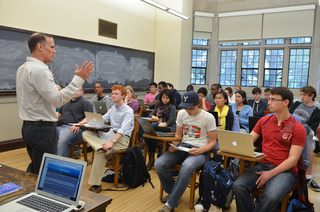
Graduate Writing Lab
The Graduate Writing Lab supports Yale graduate students with all aspects of written, oral, and visual communication. Our team helps graduate students communicate the significance of their research to a wide range of audiences. In addition to helping grad students join the academic conversation and navigate the writing conventions in their field, the Graduate Writing Lab strives to build community and promote a supportive writing culture in which every Yale graduate student can thrive.
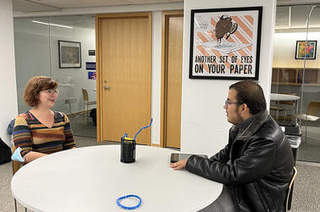
-
Teaching at Yale Day
This event introduces graduate and professional school students who are new to teaching at Yale to resources and best practices for engaging with faculty and students.
-
Fundamentals of Teaching
This four-part series for graduate and professional students introduces the theory and practice of teaching while promoting deep, discipline-specific conversations.
-
Teaching Courses and Seminars
Open to graduate students and postdoctoral scholars, these offerings are a foundational introduction to teaching in preparation for future teaching careers.
-
Graduate & Postdoctoral Scholars Learning Communities
Structured space to share experiences, reflect on teaching practices, and refine ideas with peers and colleagues.
Graduate Resources
-
A Guiding Framework for Teaching
The framework highlights the teaching philosophy and concepts that shape our educational development programming
-
A Guiding Framework for Teaching: Resource Page
Instructors can use the framework to guide their teaching choices about assignments, assessments, and classroom facilitation.
-
AI Guidance for Teachers
A guide and list of Yale-related AI resources for faculty instructors interested in using or discussing AI in the classroom.
Learning Resource Library
A collection of articles to support your journey as a student at Yale.
“My time at the Center for Teaching and Learning has made me think about always having current and future teaching goals for myself, be they trying out a new form of writing assignment or bringing social media into the curriculum. I hope that by articulating these goals to myself and to my colleagues, I will continue to develop as a teacher and discover a community of like-minded educators in the process.”
Annie Berke, Ph.D. (Film and Media Studies, American Studies)
Upcoming Events
No results found.
We’re here to help!
Reach out to the Poorvu Center team if you have any questions or to learn more about our programs.
